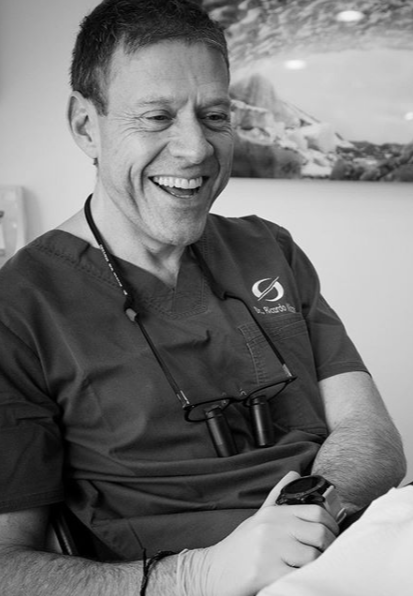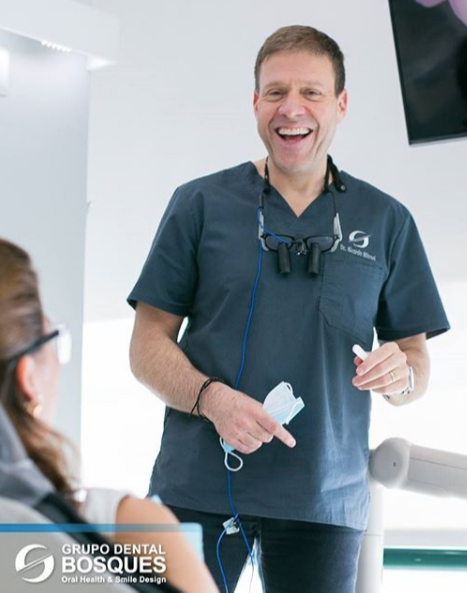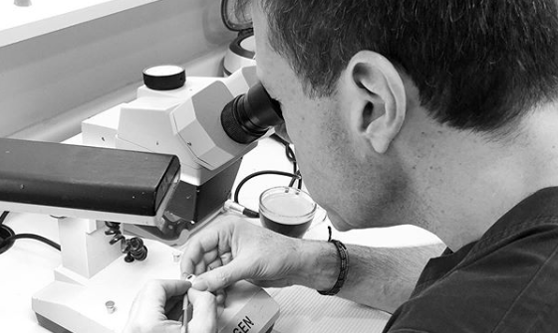Christian Coachman in Conversation with Dr Ricardo Mitrani, Part Two
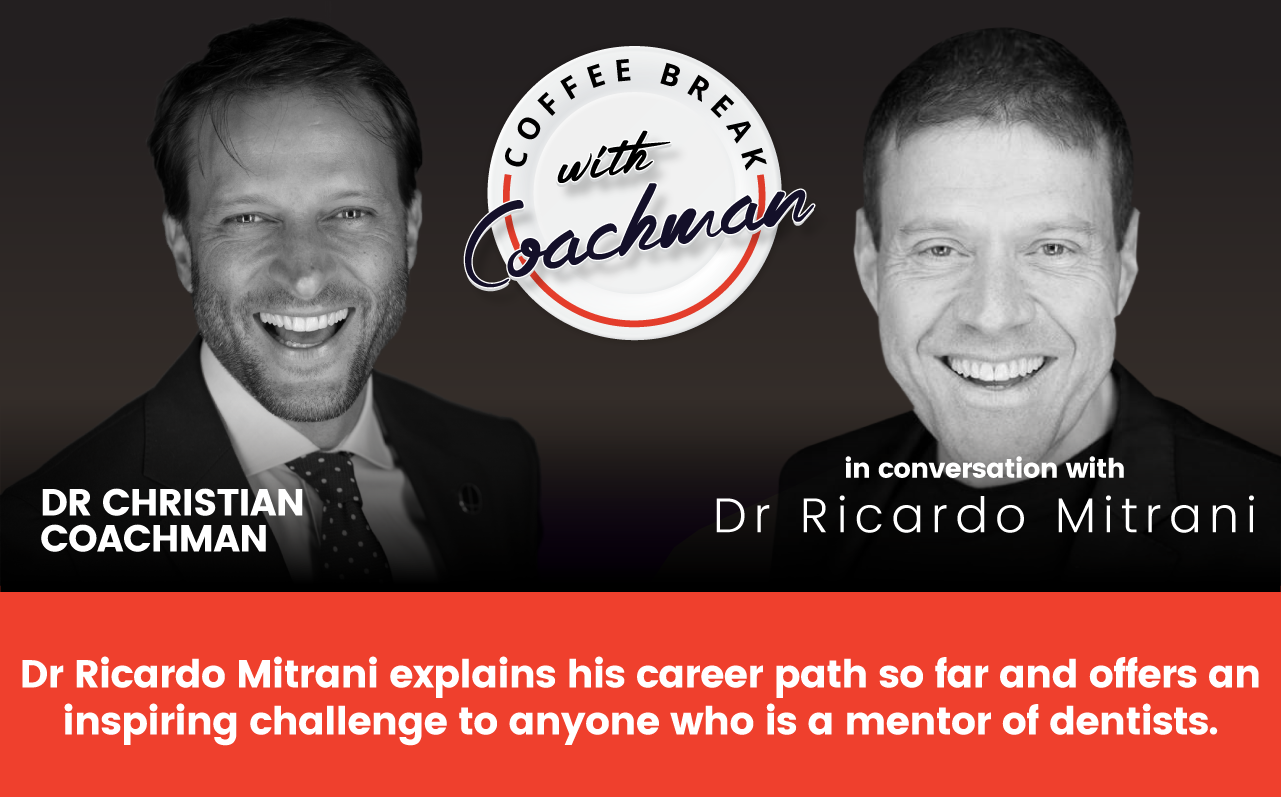
What follows is the second of two interviews with Ricardo Mitrani from Mexico, who runs a successful private dental practice and is a thought leader in the topic of terminal dentition. We talk about the potential for conflict of interests, not only on the clinical side but also as a teacher. How do we deal with that? And combining conflict of interest, we talk about selling in dentistry. Does that exist? Do we sell dentistry? How can we sell ethically? Should we sell at all? Also mention about persuasion. If we use persuasion, is that fair, is that ethical, when we are presenting a treatment plan to patients?
This interview was originally taken from Coffee Break With Coachman, a series of interviews with the best dental brains and the best personalities, in short, the most influential people in our dental industry today. From business to marketing to clinical to research, academics, laboratory technology and digital, each of the interviews is a conversation with a thought leader in their field, sharing their knowledge and experiences.
CHRISTIAN: To start with, let’s go back to basics for a minute. Terminal dentition, what is it?
RICARDO: Well, in the minds of many dentists, it's many things. But I'll tell you, terminal dentition is a term that we dentists created. We choose when the patient's teeth should no longer be there. And we choose, and I want to tie it back to all the different elements that we had for our discussion, we choose based on what we think is the best for the patient, but there may be also a conflict of interest here. I'm going to say this very respectfully. This is not a witch hunt. I'm just saying, we’ve got to think about the bigger picture. When, in the name of doing a procedure, we do it every day, we start looking for it in patients that may not need it. This is an uncomfortable conversation that we all have to have with ourselves.
CHRISTIAN: Let me elaborate a question here for you to enter this topic, treatment planning is the most important part of what we do. We need to understand how to treatment plan. You also agree with me that treatment plan is basically a decision making process. If it's a decision making process it means somebody needs to make the decision. The dentist is making that decision by himself usually because the patient is not there as you are treatment planning.
You're preparing a presentation to present to the patient maybe the next day, so you're treatment planning alone or maybe with some colleagues and you're deciding on things. You said conflict of interest. First I would like you to explain what means exactly conflict of interest, like very didactical as far as the meaning of this sentence and how important it is to understand when you're making decisions for the patient. How can you avoid conflict of interest?
RICARDO: I can go ahead and read the exact definition of Wikipedia for everybody to hear it. But bottom line, conflict of interest is your decision or your attitude towards a product, a concept, a line of thought. Maybe I don't want to use the word tarnished but maybe influenced by a greater good that you'll be getting out of it.
So for instance, this is why I said, let's understand the misunderstood conflicts of interest. Of course, if I'm giving a lecture for Iva Claire dividends or I'm saying, okay, this lecture is partially sponsored by Iva claire dividends, it's very different if I say it as a speaker, then if I don't say it and I get compensated. So one thing is for sure that every speaker that is compensated and I think it's perfectly legit to be compensated for our lectures by companies, which again, which could have different readings in some members of the audience. But at the end of the day, there's nothing that's going to be 100% what we see.
CHRISTIAN: Then you should use the disclaimer, of course. It's key as teachers, we need to start saying, I have this benefit here. I'm sponsored by this. That way that the audience can be protected and filter what you're saying. You also feel more free to say whatever and support whatever company because you already said, what are your benefits from them. That should be the same with the patient maybe.
When you're explaining something to the patient, somehow, you should say,
"Look, I enjoy much more doing implants than doing endo. So that may have an influence on what I'm going to tell you. I believe you should extract that tooth. But I want you to know that I'm better with implants then with endo and that may influence what I'm saying. Now you patient, you take that home and you think about what is better for you."
RICARDO: What I love about talking with you Christian, is that one of the many things that we have in common is, we are okay taking the heat. We are okay being challenged because being challenged only means it's growth.
Well, here's the problem.
I think that many speakers don't like to be challenged. Many speakers and many educators and many, many people that in fact get information from social media which can be a crazy place to get information from because it's confirmation bias. There are so many self-proclaimed gurus doing so many things, but the bottom line here is I would encourage audiences to challenge everything they hear regardless of how much you've disclaimed.
I mean we know that you, Christian Coachman among other things are lead developer of DSD, so you have every right to share the enthusiasm and magic of what DSD is doing.
Do you have a conflict of interest when every time you talk about DSD? For sure, you do, nothing wrong with it. The problem is when you don't disclaim it or the problem is when, I mean, again, as speakers, we can only share with audiences this piece of information because we have time slots to cover. If you have a one hour lecture and you're lecturing on a specific topic, you cannot say everything you know about that topic so you distill it in what you think are the key points. If you look at those key points, you may find conflict of interest all over the place.
CHRISTIAN: When you start a research, when you start an article, how do you start an article? You have an idea. You said, I have an idea to do this, this way and why? Because if you do this way, this is probably going to happen for our benefit, so now I have to prove that we have this benefit. Right, so now I'm going to do a research to prove this benefit and that's a conflict of interest because you're already entering into research with that idea because otherwise you don't have a lecture.
Source: Instagram: ricardomitrani
RICARDO: These are the articles that have some science in them because a lot of stuff that we read, there's no science there just show and tell. But if you go into an article that has science, do you know which is the part of the article is more important? No, you have materials and methods. Then you have how the procedure was done. Then you'll go for results, you'll go for discussions, analyses, conclusions, you know which is the most important piece of it all? The most important part is discussion and why? Because a well written article has to contrast their findings to the findings of other people that have researched something similar, so that's the only way that you can create some sort of a conclusion that may adhere to the actual truth. Now you start digging into materials and methods and you start digging in into what was done and you're going to see flaws in pretty much every article out there.
So again, if we look into that right there, you'll see there was some conflicts of interest and so which means once again that us as audiences need to be worried, we need to be doubtful. We need to challenge everything that we hear. Now, granted in the lecture circuit, you will find speakers that transpire they're doing it because they care to share what they feel works in their hands. And so you look at the lecture circuit, you're going to see different names out there that do transpire that energy that, is this worth looking into?
My problem as an educator is it is so easy to mislead audience. And so when we do that, we don't realize how damaging our message can be. And so this is where I think every speaker has to really think twice and be responsible.
Last week I gave this lecture on general dentition with the question, where do we draw the line? In dentistry there are so many different lines. It depends on what you want to talk about. You draw a bunch of lines. When you do DSD, those are different lines that digital lines.
CHRISTIAN: When you're lecturing, there's many moments in your lecture that, you know as you're lecturing and speaking, you are organizing your phrases and sentences because you know that, if you use this word, you're probably going to be closer to the truth. But if you use that word, you're going to look good. You're going to look better on stage. Many times you want so much to say word B because you're going to look better there than saying word A, even though that is probably more honest and down to the real truth. So it's an exercise with every sentence that you say that can be interpreted in a different way and you can manipulate the words to look good, just to make your message look better, even if it's not actually what you believe in it or it's not exactly how it happens. Sometimes you're losing this strategy because you have a bigger message that you want people to get to that story and really understand the whole message is great, but it's a conflict of interest as a teacher, even if it’s is an amazing topic. For me it's just people looking in the audience.
You need to just filter over and over and over again every single day, every single moment. Because even if we have the best intentions, our brain can manipulate ourselves to say things that are not exactly what is going on.
RICARDO: I totally agree with you. I'm thinking the adrenaline of being on stage. You've got the spotlights and you've got people watching you. When you do this long enough, you start reading the audience and you see their faces and you see how connected you are with them, either by them nodding or by them looking at you in a critical way. That right there is a conversation that's going on in the back of your brain while you're saying another thing. But there's a magical moment in which you choose to do the right thing because that's the way it should be. At the end of the day we're so filled with conflicts of interest, put it this way. Which cases do we choose to show?
CHRISTIAN: I just don't think it's that easy, we can choose and say I'm here for the truth and for the best. But if you analyze 10 years of lecturing, you look back and you say, "Many times I mixed things not because I had a bad intention, but because I'm human, because I have an ego.”
RICARDO: I'll tell you when the good lecture happens, but this is my belief system. I may be wrong, but this is what happens to me. The best lecture is that lecture, when I am able to locate one person in the audience that I'm talking to that person and I'm totally transparent to that person and that person's name is to me. I cannot boast it to myself. But I will stick to myself. Somebody in the audience will pick up that I'm bullshitting.
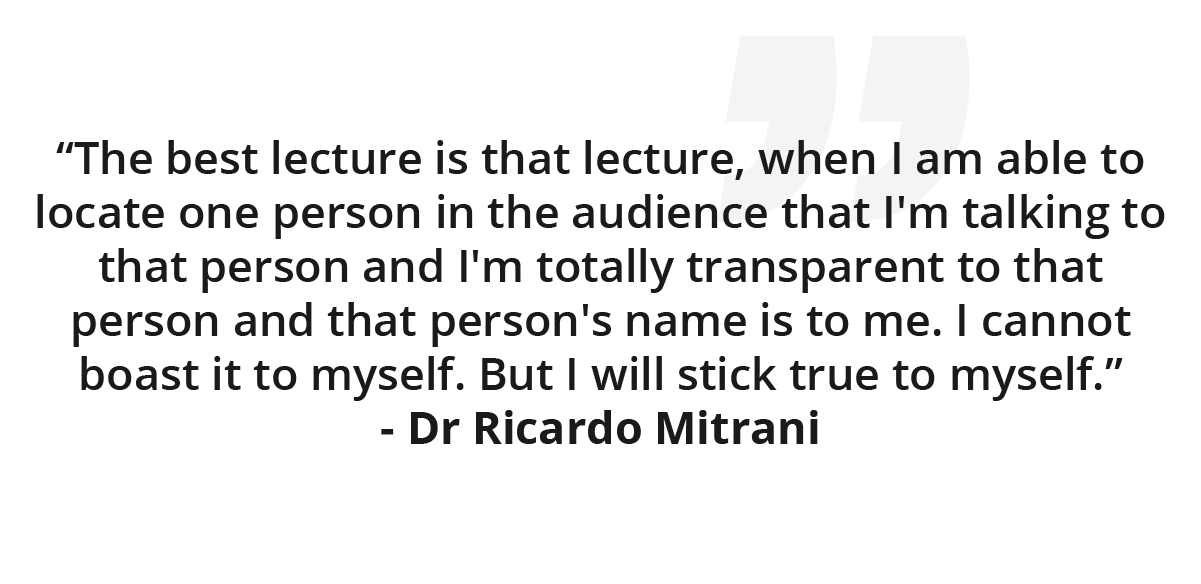
CHRISTIAN: I'm going to compliment what you just said. What you just said is amazing. Everybody that lectures should listen to this. You need to picture yourself in the audience. Look at that person pretending is yourself and be ashamed of yourself if you're bullshitting to yourself because you know how you can do that. It happened to me a couple of times when your wife, probably the person that knows you the most. My wife knows exactly every single bullsh** about me. Everything I say, she knows, "Bullsh**, bullsh**, bullsh** again." Now when she's there and listening, I can tell you I'm 10 times more careful about how I'm gonna express my point because at the end, she's not going to say anything. She's going to look at me and I’ll know.
RICARDO: So let me just share with you something that's really cool for the audience right here. So as speakers, we don't know how received the lecture is. Of course, you leave the podium and people will come and give you all sorts of accolades. "Oh, that was amazing. What a lecture. You changed my life." That's all a bunch of bullsh** really. But then you feel so pumped because you can hear all this not a bunch of bullsh**, but it's hard to filter what is and what is not.
Ever since I started with peer education. Can you imagine lecturing side by side with Frank Spear or Rek Kinzer, every single lecture, the audience is filling the evaluation sheet. They're essentially comparing my lecture to Frank Spears who is the ultimate guru. So I cannot tell you how humbling it's been to read feedback. The only true weapon you have in your arsenal when you go out and lecture, is to be true to yourself. Because if you're trying to show how good you are based on, I got to show them, that's insecure. That's fear that comes across. And as you know, if you are fearful, when you come close to a dog, it'll bite you. If you're fearful, if you happen to be in the course, it will knock you down.
CHRISTIAN: But then you have another problem, I saw that happening many times. Some people become so good at bullsh**ting that they start to believe it for real. I see that happen. And if we're not careful, that happens with us as well. We believe the message is great. The lecture is amazing. You strongly believe, and everybody's like, wow.
That wife test is the best, as when my wife is there, everybody's like, wow. And my wife comes back to me and says,
'This is exactly the truth. You missed the point here and there, you got so excited about what you were saying about yourself or about your position. You got excited with the excitement that you went away a little bit from being honest with yourself."
RICARDO: The line is very thin. Again, it's so simple. We're caught with the excitement of the lecture, the spotlight, the adrenaline, the crowd. Sometimes we have to have a closing message and the clock is ticking because these are things that people don't quite see unless they are part of the lecture circuit. But you grow, you grow and at the end of the day, I really believe in this concept of less is more. And you've got to be very clear to yourself as to what do you want, what do you want the message to be? What do you want the message to be?
CHRISTIAN: The final conclusion here is to call the wife of the speaker and ask her, "What do you think about what your husband just said." That's a great thing to do.
But I want to move from a conflict of interest in the lecturing circuit. I think this is a great discussion we just had, really very important to explore more and more of these topics, you to put pressure on us as speakers, we need to control ourselves more on the content that we share.
We need to understand the power we have when we speak and that our responsibility is huge when you're speaking from above and people actually listen to you. It doesn't matter if people in the audience are smarter than you, you are in a position that you have the power of the microphone and this is going to be dangerous.
But I want to bring this discussion to conflict of interest as a clinician selling dentistry. We have people teaching dentists how to be persuasive and I can tell that because since five, I would say seven years DSD become mainly a course on how to teach people how to communicate with patients. We teach people how to differentiate themselves, how to wow the patient, how to understand communication techniques, storytelling techniques, body language, persuasion, digital communication, and as I tell all the people coming to my course, the more you know about this, the more dangerous it is. You have to put ethics above absolutely everything, you need to protect your words with ethics because when you're good communicating, you can manipulate people.
In my humble opinion, we sell every day, not only in dentistry, that's life. When you're convincing somebody about something, your sound, when you're trying to make your kid do something. You're selling your idea. When you're negotiating with your partner, when you're trying to get money from the bank, when you're presenting a treatment plan, it's all about the intention. If your intentions are good, if you believe that you have in your hands the best for the other person, you're going to use your words to try to persuade people. In the end you're going to exchange your service for money. And for me in the dictionary, the translation is selling. So what are your thoughts about all this?
RICARDO: I just finished an article called The Biggest Dental Lie and it should be published soon. I started with a very thought provoking line, "You use a lie enough times it becomes a truth." This is marketing 101. You could persuade, you could bullsh** people. That's one thing that of course we'd have to stay away from because it really is harmful.
I wrote a piece two years ago called Utilizing the Buyer's journey in Treatment Planning Communication. So the buyer's journey is a concept that has nothing to do with dentistry. It has to do with marketing. As buyers, we typically go through a three step journey and we would be remiss if we don't think about patients as buyers because sure enough they are buyers.
Now, you may choose not to see yourself as somebody that's selling, but the patient is going to be a buyer and so that buyer journey has three very distinct stops. The first stop is the awareness stage, the buyer has to be aware of what the problem is. If this is a buyer, maybe the problem is, I don't have enough shoes, I don't have enough suits. That's a problem. I need to go solve my problem. I need to go buy new shoes.
As a patient my awareness is, I don't like my teeth or I cannot chew, I am partially aware of my problem. Next comes the next stage, which is the consideration stage, based on this problem that I have, I can now consider solution number one, solution number two. So I can choose shoes number one or number two because I want to buy shoes.
Source: Instagram: grupodentalbosques
Now, thirdly, after going through awareness and consideration stage, you then go to the last stop of the journey which is the decision stage. You make your decision based on price, or on which solution you think is better for you. Now if you think about it, this happens to you as a buyer buying stuff.
The same deal happens not only through a patient's mind but for the treating team. Think about this for a second. You work with your dad when you do clinical stuff and your dad is a phenomenal orthodontist and you Christian are a fantastic technician and restorative dentist. You have a lot of information from your end, but you don't have all the pieces of the puzzle. You need to also talk to your surgeon or your orthodontist, but now the problem the patient has, you've increased the level of awareness of what the problem is.
Based on what the orthodontist said, based on what the surgeon said, based on what the technician has said and based on what the restorative dentist said, you've increased the level of awareness. You see the problem that needs to be addressed by different solutions. You can go through crown lengthening or you can go through orthodontic intrusion or you can go through repositioning of tissue. You have different solutions, and then finally you go to the decision process. You will say, based on these potential solutions, we feel this is the best for the patient.
CHRISTIAN: Let me throw you a real scenario here. You have a patient that comes to you thinking that he needs six veneers. You analyze the case and you can do six veneers for the patient, but you realize that if you do orthodontics and you align the teeth, you believe it's a better treatment. But at the same time it's better business for you because now you'll increase the value of the treatment as you're going to sell six months of ortho plus six veneers. So, when you are explaining the benefits of ortho, the conflict of interest is here. The patient is asking, "Doctor, are you trying to convince me to do orthodontics because it's the best for me or because it's going to bring more money for you?" Of course you're going to say, it's because it's the best for you. It is. But it may bring me more money for me as well, so I cannot deny that it's better for me that you do ortho.
RICARDO: It's a very simple answer. Go back to your lecturing when you're speaking to you or your wife, you cannot bullsh** you or your wife, it’s the same deal. When you're communicating with therapeutic patients, the tour of the mouth. When you get a tour of the mouth and you talk about solutions, and again, that's why I like going with the buyer's journey, you put on the table what the solutions are. Now you got to be very careful with the kind of solutions you offer. There's a great book called The Paradox of Choice by Barry Schwartz who's a behavioral psychologist. You should not throw in too many options because you'll lose people. So based on that, you're essentially offering to the patient what you feel is in their best interest. Now the big challenge here is that some patients don't know.
CHRISTIAN: People don't know exactly what is the best for them.
RICARDO: I want you to think about this quote and never forget it. ‘People don't know what they don't know’. And they come see us as dentists and we should not be giving a full day lecture to them. What we need to do, the first thing we need to do as clinicians is to learn to listen because part of the problem is that dentists are not good listeners.
CHRISTIAN: This is another problem, but now when you're trying to convince the patient that the patient needs to do ortho before veneers and you know it's the best for the patient. And as I say, many times we need to save the patient from themselves because they're about to make a bad decision for themselves because they think they know what is best for them. So now you have the notion that is better for them to do ortho than veneers. Would you use your communication skills and your persuasion skills to convince the patient, even though the patient says, "I just want to do veneers, doctor”? Or would you say, "Okay, we do whatever you want"? Or are you going to use your persuasion and your charisma and your communication skills to convince the patient to do ortho before veneers?
RICARDO: If you let the patient know what the consequences are of choosing one option versus the other, the consequences of inaction or the consequences of doing veneers without ortho. Patients don't want to listen to that much either, but if you are clear enough, I mean dentists have to be good at it, they have to be good communicators. You're guiding. Great communicators, they make people believe they decided, but when in fact the dentist was skilled enough to drive the conversation in the way, explaining the pros and cons and explaining the price that you have to pay if you say no. But that is exactly what we learn in persuasion books. We persuade every moment, every day of our lives. It's just a matter of saying if your persuasion is with good intentions and you're putting the other person at the center to persuade people to do what is best for them.
Some patients will know exactly what they want and they will not want to hear any plan B and I guess for those patients you may choose to treat or you may choose not to treat. At the end of the day it's about how comfortable you are with what you're doing or with what you did. How do you sleep at night? The end of the day is so long as you're okay giving the patient enough information for them to realize what is the consequence of them choosing one route of treatment versus the other, then it's their call and I'm pretty good with that. The problem is when I see clinicians trying to persuade because of any conflict of interests that sometimes goes beyond the money issues. It's just about, I want to do so many cases of this technique so then I become the self-proclaimed guru of doing that technique. That's where I have a problem and so that's why our seminars called the Art of Treatment Planning and Case Presentation because there's an art to it. That's what you teach in your DSD residency about the art of communicating to patients, but if we're not good listeners, it's next to impossible.
CHRISTIAN: It's definitely step number one, to be able to listen because then you adapt your strategy. You adapt your presentation. That's the key. It's not a standard presentation because each human being is different. So the act of listening, the art of treatment planning and the art of presenting, they are all together.
RICARDO: Let me just say this one thing, we always continue what the other one says, we always do this, you and I, because each patient is different, because they think differently, because they're built differently. We cannot have a one size fits all treatment plan for patients. It’s obvious, you say of course but the problem with the obvious is that it's not that obvious. We have colleagues doing a one size fits all procedure for all patients and I'm going to call it out.
CHRISTIAN: Veneers is the number one. Whatever problem you have, I will fix with veneers.
RICARDO: Or terminal dentition. I decide you have a terminal dentition and so the best thing for you is to put implants in and that's a great solution for you. This is where I have a problem because I'll tell you one thing, all on four is a phenomenal option. An incredible solution for the right patient, not for every patient.
Source: Instagram: ricardomitrani
CHRISTIAN: I would say it's a great option when you don't have other options. I always like to emphasize it as a phrase that I heard, it really has a lot of power. "The more I know about implants, the more I love tea." I loved that because it shows exactly the turning point we're going through now in terms of really understanding, and thinking about the patient's quality of life long term, not about our business.
Because that's the problem of bringing business to dentistry - business people, they want a business model.
When you have a business model, you want to reduce the amount of options. When you reduce the amount of options you make more money because you have one or two procedures that you do very well. When you have one or two procedures that you do very well and you have great profits, you try to fit everybody into those procedures. So on the treatment presentation, you train people to sell that procedure that you're good at it because it's straightforward. Your whole team is trained to make money with that procedure.
RICARDO: The benefits of treatment outweigh the risk of no treatment. That's got to be the line. That's one, and then secondly, just to wrap it up, when you are offering dentistry, you're offering all on fours or whatever. We all heard the quote that says that, "The end justify the means." So do the ends justify the means? Many times the means are the end. If you think about it, how we act changes who we choose to become, changes how we are chosen to be perceived and that's something that every clinician has to think about. When we're doing things, why are we doing them? It's complex and it's simple. There's nothing wrong with making money.
CHRISTIAN: But it is the challenge, to draw that thin line, keep ethics, battle conflict of interest every single time you're speaking to people in life in general, but mainly when we are selling our dentistry and explaining our treatment plans, to understand exactly and do what we say that with the quality ethical tests about each phrase that you're going to use to bring that solution. At the end of the day, when you're passionate about dentistry, I think that's the first step.
When you're more passionate about your dental office, than your dentistry, you're more passionate about being a business owner then being a clinician, that's when we see the problem starting to happen.
Nothing against being a businessperson, but in dentistry, it’s about building treatment plans. We should have people that are passionate about dentistry because people cannot sleep if they're making a decision just because of money. People like you. I know if one day you push the patient towards an all on four because you need the money to pay the bills that month, you would like a month not sleeping very well, thinking about that. So it's a complicated topic and I believe there's much more to be explored. And because at the end of the day things need to make sense.
Emotionally speaking for us, that's what makes us happy and when we talk about these tough topics, it looks like the idea starts to organize, you find to your behavior, your attitude, you become a better person when you talk about these tough things, when you admit your weaknesses, when you admit that sometimes you're working on your behalf. And I think the only way to do balance that is talking about it, it's exposing yourself. You said we are not afraid about exposing ourselves.
RICARDO: I would wrap this up just sharing with you an Instagram post that I did the other day. It was funny. I was on the treadmill in the gym and I was getting ready mentally as I was going to give this lecture at the summit and I have the closing lecture at summit after three days of phenomenal speakers. As I was jogging, I thought about this quote then I wrote and I did the post. It says, "It only makes sense to do things right when you're doing the right things."
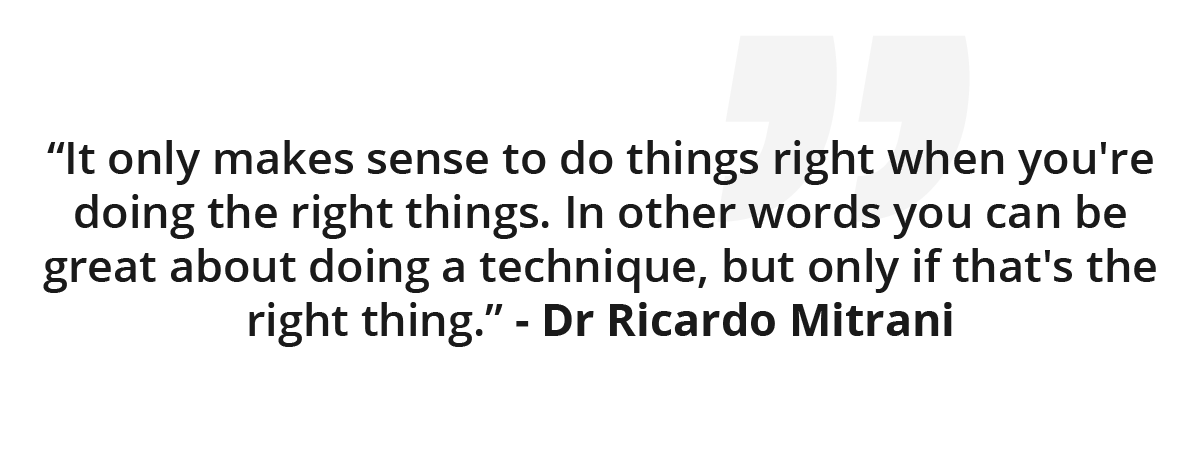
In other words you can be great about doing a technique, but only if that's the right thing. So think about it. It only makes sense to do things right if you're doing the right thing. For somebody like you and me, that would be a given that we're there to do good stuff for the others.
I hope you enjoyed this interview with Dr Ricardo Mitrani and were inspired and challenged, as we were, to keep on considering conflict of interest and pursuing the right solutions for every patient. If you would like to know more about Digital Smile Design, the DSD Planning Center and the courses we offer, including our four day residency to take the first step to becoming a DSD Master, find out more here:

